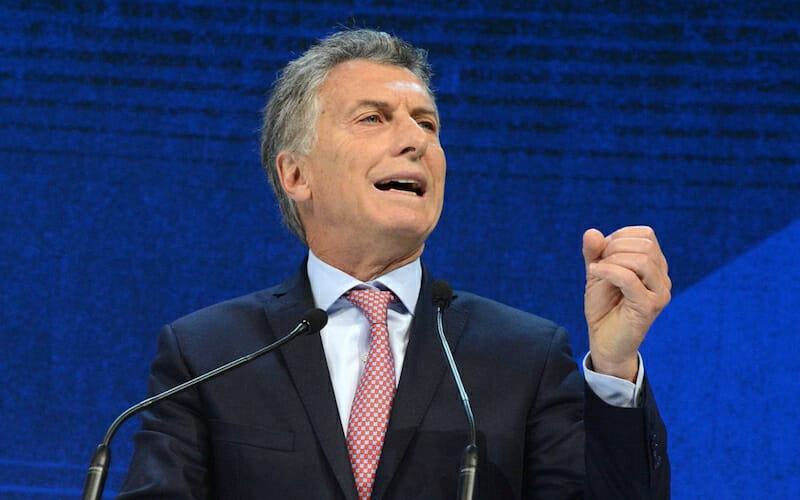
Steel Trade on the Agenda of G20 under the Argentinean Presidency in 2018
As expected, the announcement by President Trump to the impending tariffs on steel products was followed by immediate and wide-spread reactions by major economies around the globe.
While discussions on a bilateral and on a trade-block basis are underway, on March 6 2018, the OECD Secretary-General Angel Gurría called on the governments of steel-producing economies to address the crisis through multilateral approaches. According to Mr. Gurria, “As shown repeatedly in the past, we need global solutions to global problems – and that is exactly why the Global Forum on Steel Excess (GFSEC) capacity exists. But it must accelerate its efforts.”
G20 Leaders created the GFSEC in 2016 and at their 2017 Summit in Hamburg leaders confirmed they agreed on policy recommendations for the restructuring of the industry. The work is expected to continue under the Argentinean presidency of the G20 and the current friction among relevant players is expected to reverberate during the meetings to be held by the GFSEC in Paris on March 7th and 8th.
During the meeting of the G20 Finance Ministers’ and Central Bank Governors’ Deputies to be held from the 17th to the 20th in March in Buenos Aires further discussions should not be ruled out. The Trade and Investments Task Force – within the Business 20 led by Argentine steel-business tycoon Mr. Paolo Rocca, CEO of steel tubular manufacturer Tenaris and head of the Techint Group – could mark a milestone for its first meeting to be held in May.
Tenaris has taken an active role in promoting anti-dumping investigations to involve setting import tariffs in the United States, Canada, Mexico, and South American Countries for steel tubular products imported from several countries, including but not limited to China and South Korea. Because the main facilities of Tenaris are located in the Americas, including the recent inauguration of a green-field mill in Bay City, Texas, the role of Mr. Paolo Rocca as Chair of the Trade and Investment Task Force will be deemed non-neutral by other leading producing countries of steel, such as China – as member of G20 – and South Korea.
This calls for a delicate balance by Mauricio Macri, Argentina’s president, and his team for their intervention while balancing the whole agenda of the G20, especially considering that Argentina applied to become a member of OECD, during Macri’s administration.
The prominence of the Techint Group within Argentina could undermine the international aspirations by Mauricio Macri
With roots in Argentina, Techint Group is the largest business conglomerate in the country and Tenaris is well positioned in the international market for steel tubular products. While the media noted that the recent inauguration of the Tenaris mill in Bay City was a move in anticipation of potential trade barriers, it has to be noted that the investment decision was taken several years before Mr. Trump was elected president. Indeed, Tenaris followed several international competitors which had already taken the first steps in green-field investments for steel tubular for oil and gas users within the United States.
The influence of the Techint Group in the decisions taken by President Macri’s administration in favor of large corporations is hard to be overlooked.
For example, Tecpetrol, the oil and gas producer within the Techint Group, has recently benefited by the application of domestic prices for natural gas over international benchmarks to develop its acreage in Fortín de Piedra, within Vaca Muerta shale, as Moody’s highlights in its review of the company: TECPETROL has “limited commodity price risk since prices for unconventional gas in Argentina are set by the government for the next four years at between USD6 and USD7.5/MM BTU, about twice the current Henry Hub prices.”
Not only Vaca Muerta, but non-conventional and even conventional developments are benefiting by the application of domestic prices over international benchmarks set by the government as minimum prices to support investment and labor.
While the Macri administration claims that the primary objective to applying minimum prices for oil and gas production is to reduce the energy deficit, the fact is that such benefits shoring-up the cash-flows of oil and gas producers is also supporting the volumes and prices of steel tubular products sold by Tenaris within Argentina.
There are negative effects of domestic prices of oil and natural gas over international benchmarks on the environment too. In particular, Argentina could not comply with its commitments to the Paris Agreement, as such domestic prices can be a deterrent to the development of sources of energy with lower emissions of carbon dioxide and produced in a more environmental friendly manner, particularly considering the high quantities of fresh water required to produce hydrocarbons from shale formations and that the Province of Neuquén declared all river basins and sources of fresh water under a Status of Alert as per the Provincial Act.
On the macro-economic perspective, domestic prices of oil and natural gas over international benchmarks set by the government of Argentina benefit the profits of upstream oil and gas producers. Macri’s continued similar aid sets by the former administration under President Cristina Fernandez de Kirchner proved inadequate in arresting the decline of production, while increasing costs for consumers and accelerating the rate of inflation.
Also exposing Argentina to international scrutinity, the Judicial investigation of Tenaris and Techint Engineering and Construction and its extensive web of offshore companies with irregularities – including Tenaris being mentioned in Panama Papers – has recorded limited to no progress so far.
Several files were opened in Federal Criminal and Correctional Courts of Buenos Aires relating to Tenaris and Techint’s exposure in the Lava Jato mega-probe. One of them was opened upon the request of the anti-bribery working group of the OECD and others were opened after the presence of Milan Prosecutor Fabio De Pasquale in Buenos Aires Courts requesting to raid offices of Tenaris and to enquire Mr. Paolo Rocca and officers of the company.
Among irregularities, there are several companies incorporated in different jurisdictions under practically the same name such as Tenaris S.A. in Panama and Tenaris S. A. in Luxembourg, dead people as members of the companies Tenaris USA incorporated in Delaware with a branch incorporated in Colorado; such branch recorded under the status of “delinquent” according to the publicly available database of OPENCORPORATES, as of October 2017.

